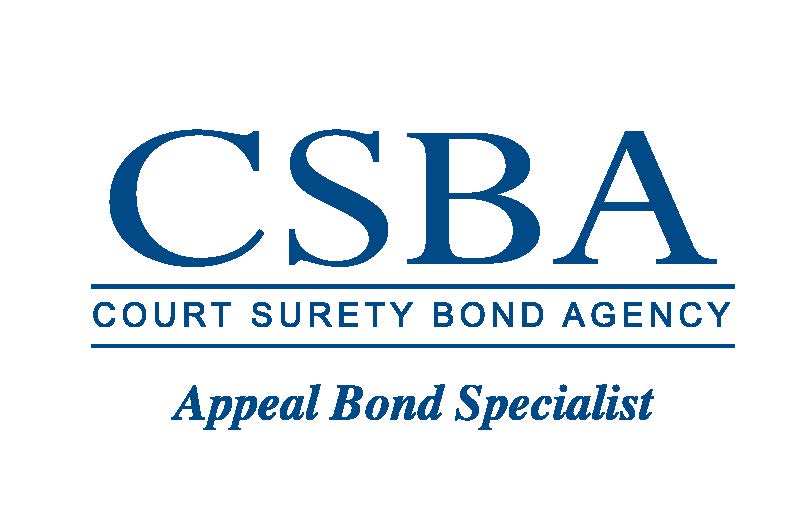By: Christopher D. Donovan
Happy New Year! We made it out of 2020, which saw many changes to how we practice that will likely stay with us in the New Year, including remote working and Zoom hearings. There were also many important amendments to the Appellate Rules of Procedure, including changes in jurisdiction, the font style of filings, and a move from page limits to word limits. Most of these changes became effective on January 1, 2021. Here’s a summary of them:
Circuit courts lose jurisdiction over county appeals.
The legislature enacted the first significant change to jurisdiction in 40 years by amending section 26.012, Florida Statutes (2019), and repealing section 924.08, Florida Statutes (2019), thereby removing circuit court jurisdiction over county court appeals—both civil and criminal. After January 1st, most final county court appeals must now be filed in your areas’ District Court of Appeal, and those that are currently pending will be transferred to the District Courts. Look for a more detailed article covering the impacts of this jurisdictional change to be published in the Record in January, 2021.
Appellate filings must use either Bookman Old Style or Arial font.
The Supreme Court also moved the technical requirements for petitions and briefs in rules 9.100, 9.120, and 9.210 to newly created rule 9.045. For the most part, this rule contains all the same technical requirements, but with one very important difference: The Court removed the option to file appellate documents in either Times New Roman or Courier New font. Now all filings must be in either 14-point Bookman Old Style or 14-point Arial.
Petitions, briefs, and other documents now have word limits, not page limits.
Because Arial and Bookman Old Style take up more room on a page, the Supreme Court also did away with page limits on computer-generated briefs and replaced them with word limits. Although this applies to all brief-like documents—i.e., initial brief, answer brief, reply brief, petitions and responses, amicus filings, and supreme court jurisdictional briefing—it does not appear to apply to motions under rule 9.300 because that rule was not amended.
For those regularly appearing in the Federal Eleventh Circuit or other federal appellate circuit, the word limit will not be a dramatic change in practice. And like federal courts, you must include a certificate of compliance identifying the number of words in the document (less the usual parts that do not count against you) and certifying that the font requirement was complied with.
Here’s a quick chart of the new page limit for each relevant document:
| Document | Word Limit |
| Initial or Answer Brief | 13,000 |
| Petition or Response Brief | 13,000 |
| Answer and Cross-initial Brief | 22,000 |
| Reply and Cross-answer Brief | 13,000 |
| Reply Brief or Cross-reply Brief | 4,000 |
| Capital Cases Initial or Answer Brief | 25,000 |
| Capital Answer and Cross-initial Brief | 40,000 |
| Capital Reply Brief or Cross-reply Brief | 10,000 |
| Briefs on Jurisdiction in the Supreme Court | 2,500 |
| Amicus Briefs | 5,000 |
| Amicus’ Notice of Intent | 250 |
| Pass-through Jurisdiction Suggestions (9.125) | 1,300 |
New appealable nonfinal order and some other tinkering to Rule 9.130.
The Florida Supreme Court added new rule 9.130(a)(3)(C)(x), which allows for appeal by right of a nonfinal order for permanent guardianship of dependent children under section 39.6221, Florida Statutes.
The Court also tinkered with appealing orders concerning various government immunities, including sovereign immunity, absolute and qualified immunity in federal civil rights cases, and immunity under section 768.28(9), Florida Statutes. It moved appealing orders on these immunities to new rule 9.130(a)(3)(C)(vii). The Court also fixed an ambiguity in the rule’s prior version to make it clear that orders denying these immunity defenses are immediately appealable regardless of whether they are denied on factual or legal grounds.
A buffet of other changes:
- Creating rule 9.040(j) to require every appellate court or circuit court sitting in an appellate capacity to publish its written opinions on its website in a searchable PDF unless confidential under Florida Rule of Judicial Administration 2.420. The Supreme Court and District Courts have been doing this for years, but the circuit courts sitting in their appellate capacity were not.
- Amending rule 9.110(d) to require notices of appeal to indicate whether a motion for rehearing or other tolling motion is still pending in the lower tribunal. Recall a few years ago, the Court changed the rules to make it clear that an appeal filed while a rehearing is pending no longer results in the rehearing’s abandonment, but causes the appeal to be held in abeyance until the rehearing is resolved. This revision gives notice to the appellate court of the pending tolling motion. The appellate form has been updated as well. The rule also requires giving the appellate court notice within 10 days after the tolling motion is resolved or withdrawn.
- Creates new rule 9.120(f) to require parties to include a statement of the issues section in their jurisdictional brief to the Supreme Court if they intend to raise issues independent of those triggering jurisdiction.
- Amending rule 9.130(a)(4) to clarify that orders resolving rehearing are not separately appealable. They can be reviewed with a final order—if timely—but are not themselves separately appealable.
- Amending rules 9.170(b)(23) & (24) to clarify that in probate and guardianship proceedings, orders either denying or awarding entitlement to attorney fees and costs are immediately appealable.
- Amending rule 9.200 to enable attorneys to direct the clerk to send unredacted records on appeal to the appellate court without an order from the district court in every case.
- Deleting rule 9.300(d)(13), which had originally said that no motion filed in the Supreme Court tolled other deadlines—like briefing deadlines—unless also accompanied by a motion to toll deadlines. For years, the opposite has been true in circuit and district courts where most appellate motions toll deadlines. This trap for the unwary at the Supreme Court has now been removed.
- Amending rule 9.320(a)(4) and (d) to require requests for oral argument in the Florida Supreme Court to be made by the due date of the party’s jurisdictional brief, except when jurisdiction is based on a certified question and then it is due five days after filing the notice to invoke discretionary review. These requests must explain why oral argument would enhance the Court’s review of the issue, and the opposing party has five days to respond. Again, this amendment only applies in the Florida Supreme Court.
- Creating new rule 9.425, which requires parties to provide notice to the attorney general in any appellate proceeding where the constitutionality of a state statute or constitutional provision is challenged. The exception is cases involving criminal, collateral criminal proceedings, or where the attorney general is already a party. The rule applies regardless of the document raising the constitutional challenge and must be filed and served simultaneous with that document. New rule 9.900(m) provides a form for your convenience.
- Amending rule 9.440 to include two new subdivisions allowing for limited-scope appearances and providing that unless the notice of appearance says otherwise, the attorney filing it will be deemed the attorney of record.
These are just a few of the notable rule changes that became effective in the New Year. Check out the following Supreme Court opinions for others and further explanations: In re Amendments To Florida Rules of Appellate Procedure 9.120 & 9.210., SC20-597, 2020 WL 7062711, at *1 (Fla. Dec. 3, 2020); In re Amendments To Florida Rules of Appellate Procedure 9.120 & 9.210., SC19-884, 2020 WL 7062674, at *1 (Fla. Dec. 3, 2020); In re Amendments to Florida Rules of Appellate Procedure-2020 Regular-Cycle Report, 45 Fla. L. Weekly S282 (Fla. Oct. 29, 2020); In re Amendments to Florida Rule of Appellate Procedure 9.130, 289 So. 3d 866, 867 (Fla. 2020); In re Amendments to Florida Rules of Appellate Procedure 9.130 & 9.200, 288 So. 3d 1187 (Fla. 2020).



